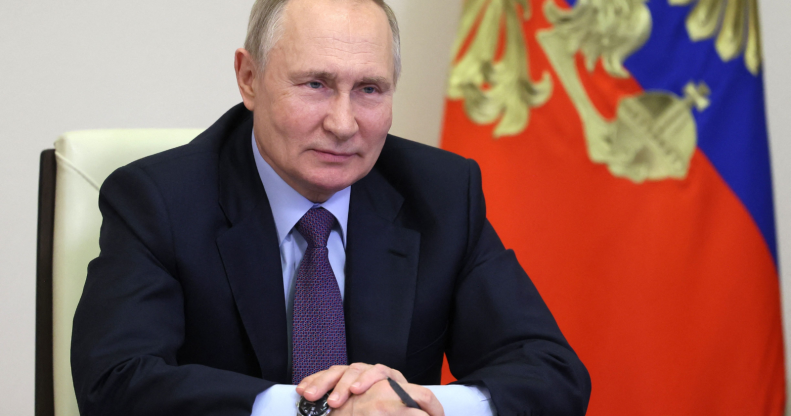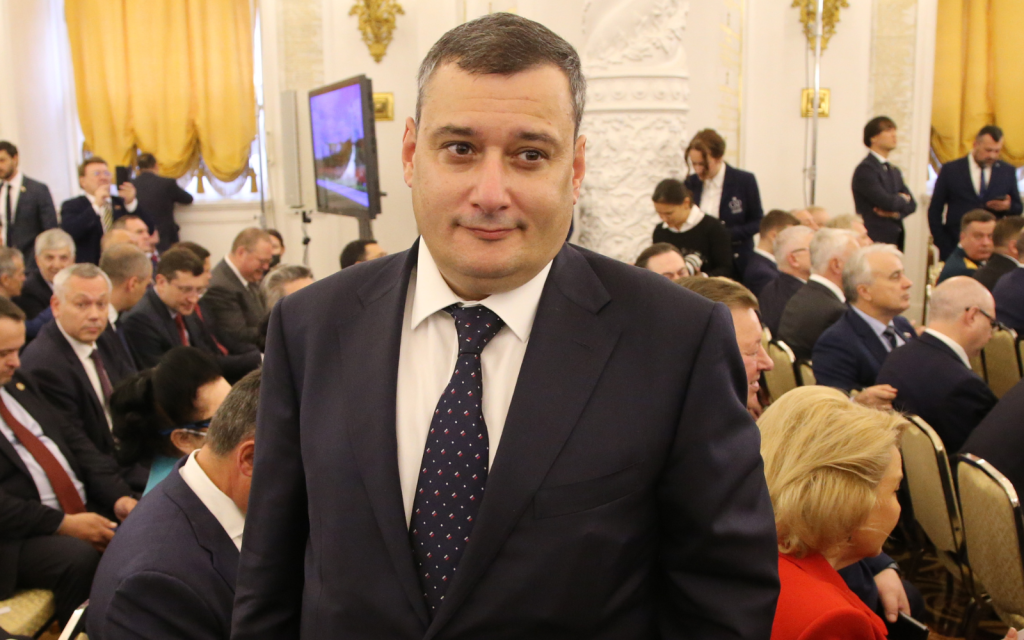Vladimir Putin signs chilling ‘LGBT propaganda law’ expansion for all Russian citizens

Vladimir Putin signed the ‘LGBT propaganda’ law expansion on Monday. (Getty)
Russian president Vladimir Putin has signed a bill expanding its ability to suppress LGBT media into law.
The nicknamed ‘LGBT propaganda law,’ originally signed in 2013, forbid media for under-18s to promote what officials deemed “non-traditional values,” including same-sex relationships and gender diversity.
Now, after being approved by the Federation Council on 30 November and signed by Putin on Monday (4 December), the country has effectively banned all LGBTQ+ media for Russian citizens of all ages.
Its effects are already being felt in the country, with authorities reportedly cancelling gay pride events and detaining activists, according to Reuters.
Those found in breach of the law can be fined up to 400,000 roubles (£5,400), while organisations can be fined 5 million roubles (£68,500).
Non-nationals can face up to 15 days in prison and expulsion from Russia.
“This bill deprives LGBTI people their right to freedom of expression and endorses their discrimination, risking a rise in hate crimes,” human rights group Amnesty International wrote in a tweet.
Parliament’s planned expansion of ‘LGBT Propaganda law’
The law’s expansion was proposed by State Duma Information Committee chairman Alexander Khinshtein, who said the 2013 law was “insufficient.”
In a Telegram message, he said: “We propose to fully extend the ban on that sort of propaganda among audiences of all ages (offline, media outlets, the Internet, social media, as well as in cinema theatres).”
He later said that, since the country began its invasion of Ukraine, the law had gained “new relevance.”
During an address, Khinshtein said that the war took place “not only on the battlefield but also in the minds and souls of people.”

Since then, officials have used the bill and its proposed changes as an excuse to oppress open LGBTQ+ activism or representation.
It has already imposed fines against companies such as TikTok, Twitch, and Facebook for “propagating the LGBTQ+ community.”
Additionally, its dire implications caused Yulia Alyoshina, Russia’s first trans politician, to quit.
She announced on 27 October that she had made the “difficult decision” to step down from politics following parliament’s promotion of the amendments.
“Today, the State Duma (Russian parliament’s lower house) adopted in the first reading the bill on banning LGBT propaganda,” she wrote in a Telegram message.
“I have never engaged in such propaganda, but I have no idea how to continue conducting public political activities, being an openly transgender woman.”
In an interview with The Guardian, Russian LGBT network spokesperson Igor Kochetkov said officials have not explained “what they mean under ‘LGBTQ+ propaganda.'”
He went on to say it was difficult to know how badly the bill would affect the community, but that the situation “was already very dire.”
The notion that the expanded law would go into effect prompted many LGBTQ+ Russians to flee the country.
Activist Yulia Tsvetkova was forced to flee Russia after being accused of distributing pornography and so-called ‘LGBT propaganda.’
In a rare win, she was acquitted, but had routinely been threatened with further legal action by authorities.
Her mother said the artist had left Russia and was subsequently deemed a “foreign agent.”
“Why they left, I think it’s obvious,” her mother said. “Yulia is [regarded as] a ‘foreign agent’, with a new law [criminalising “LGBT propaganda”] – it’s easier to die than to live in Russia.”

